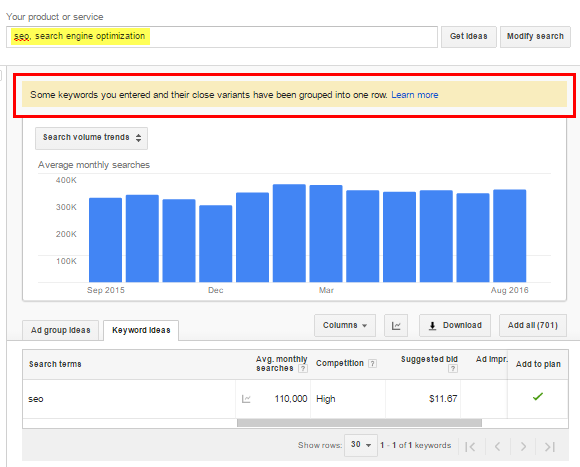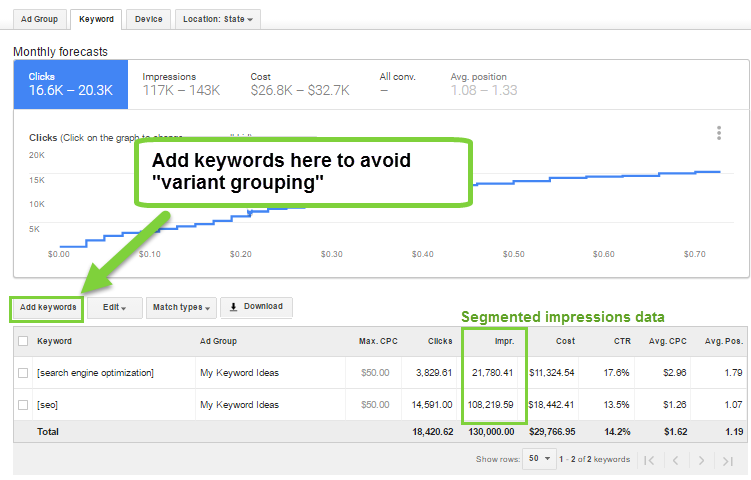Among SEOs, it isn’t news anymore that Google has been making moves to limit the data it has historically been providing for free through the AdWords Keyword Planner. For accounts with little to no spend on active AdWords campaigns, they’ll receive search volume data in ranges. And for accounts with large spend – we have seen Keyword Planner assigning equivalent monthly search numbers for similar keywords. Many SEOs are now turning to using impressions data as a more reliable source of search insight, as exporting Keyword Group data from the Review Plan screen still segments impressions data out on a per keyword basis.
Today, we discovered during our own research that Keyword Planner is now “grouping close variants” of keywords – in some cases essentially rewriting or eliminating the original query entered into the tool. In the keyword set for which we first came across this practice, we originally input the term “driving check”. The tool replaced this instead with “drive check”.
To replicate the event, we tested Keyword Planner’s behavior with terms that we know from experience are grouped as “close variants” – “seo” and “search engine optimization.”
Keyword Planner returned grouped data for the single term “seo.”
With “search engine optimization” completely eliminated from the Keyword Planner search tool, we no longer have the option to quickly and easily add that term to our Keyword Group.
Concerned that we could be missing out on valuable segmented data, we wanted to know if the Review Plan screen is affected by the same “grouping” limitations.
By manually adding the keyword “search engine optimization” to our Keyword Plan here, we are able to see segmented impressions data for each individual term.
Exporting the data from the Review Plan shows that Keyword Planner is still consolidating their search volume data – however impressions data remains granular and specific to the exact match term.
The Bigger Picture
The consolidation of search data within Keyword Planner communicates to us that Google is pushing paid marketers towards broader match keywords. This is a for-profit play – as opening up the amount of queries for your ads to be displayed can quickly drive up spend.
How does this affect SEO?
Keyword Planner has been and continues to be a great tool for discovering related terms to a set of queries. This change just makes it slightly more time-consuming for Specialists and Consultants to get granular data – data which not only guides optimization efforts, but that can also act as KPIs to track progress and prove ROI to our clients.
TL;DR
- Keyword planner may be consolidating or eliminating your keyword targets.
- Champion keywords should be entered added to your Keyword Groups via the Review Plan screen to ensure they aren’t being lost in “close variants”.




